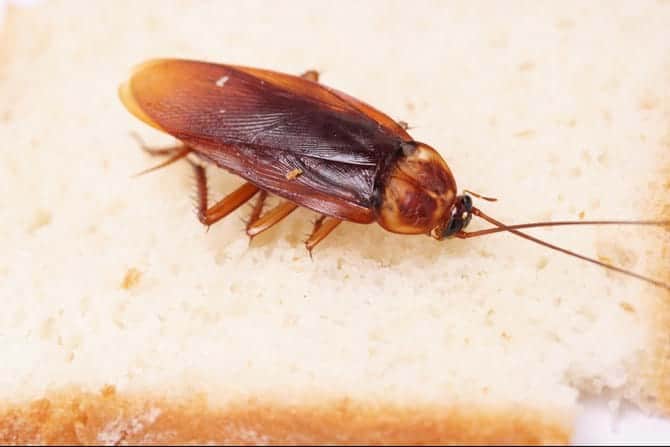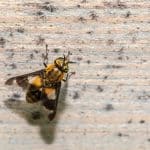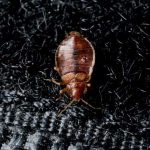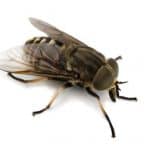If you have ever had cockroaches in your home, you know it can be an unpleasant experience. Their spiny legs, prehistoric appearance and habit of hiding out in kitchens and bathrooms can be enough to make even a brave soul feel a little squeamish.

But many people do not realize that in addition to being unattractive houseguests, cockroaches can also pose serious health concerns when they enter our homes, schools, workplaces and other buildings. For one, cockroaches can be a trigger of asthma and allergies, especially in children. In addition, these pests have been implicated in the spread of a number of serious diseases to humans, making their presence in our homes all the more concerning.
Cockroaches tend to live in moist areas, such as sewers, pipes, drains and bathrooms. There, they pick up germs on the spines of their legs as the crawl across sewage, garbage, decaying matter and other filth. They can then transfer these germs – along with their shed skins and fecal droppings – onto foods and food surfaces.
If an unknowing person consumes food contaminated by cockroaches, it can make them very ill. In total, cockroaches are known to spread 33 kinds of bacteria, including E. coli and Salmonella species, six types of parasitic worms and seven kinds of human pathogens. Common symptoms include belly pain, severe stomach cramps and tenderness, diarrhea, nausea and vomiting. Some people can experience severe diarrhea, which will cause dehydration and may require hospitalization. In rare cases, the bacteria can spread to the blood stream and cause life threatening infections.
Luckily, there are several things a homeowner can do to prevent cockroaches from invading their home and posing these health threats to their family. First and foremost, sanitation is key. Keep your home – especially the kitchen and bathrooms – free of crumbs and other debris. Vacuum frequently and use a disinfectant to wipe down counters and other food surfaces after meal prep. Tempting as it may be, avoid letting dirty dishes pile up in the sink. In addition, take out the trash frequently, and store it in a sealed receptacle outdoors.
Take an inventory of your pantry, keeping an eye out for foods that pests could access, such as those stored in cardboard boxes. Transfer these foods into sturdy, sealed containers, and throw away any foods that have passed their expiration dates. In addition, keep pet foods in a sealed container and wash out pet bowls frequently.
Finally, reducing moisture in your home can help to deter cockroaches and other pests. Repair leaks under sinks and other appliances, and consider installing a dehumidifier in damp crawl spaces or basements.
If you do find signs of cockroaches in your home, contact a pest professional promptly. They will be able to inspect your home, confirm the species, and recommend an effective course of action that will keep your family safe and healthy.




